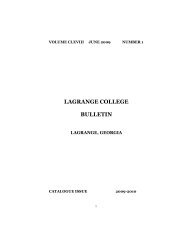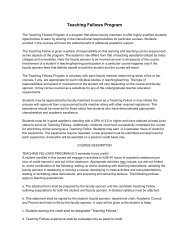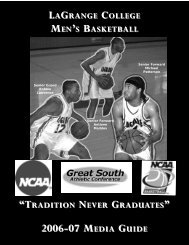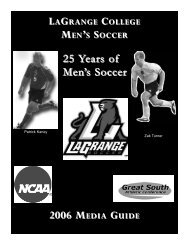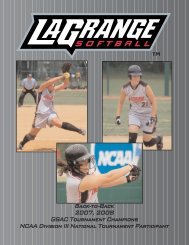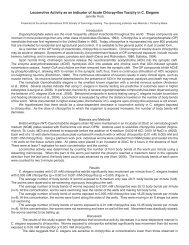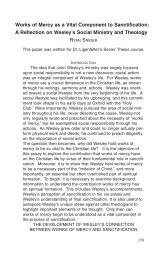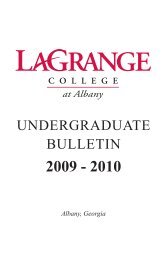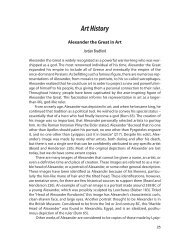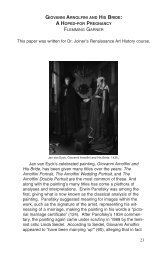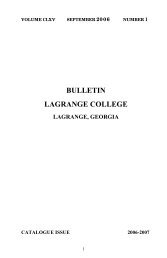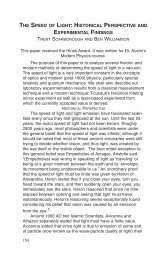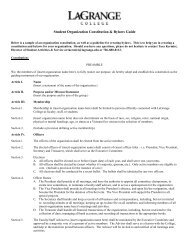undergraduate bulletin - LaGrange College
undergraduate bulletin - LaGrange College
undergraduate bulletin - LaGrange College
Create successful ePaper yourself
Turn your PDF publications into a flip-book with our unique Google optimized e-Paper software.
PHYS 2121<br />
General Physics I. (3 hrs. lec., 3 hrs. lab per week) (4) Fall<br />
A calculus-based introduction to particle dynamics, energy and momentum conservation,<br />
rotational dynamics, fluid mechanics, thermodynamics, and kinetic theory of gases. Physics is a<br />
science of measurement, testing, and experimentation—inquiry-based laboratories make Physics<br />
come to life!<br />
Prerequisite: MATH 2222<br />
PHYS 2122 General Physics II. (3 hrs. lec., 3 hrs. lab per week) (4) Spring<br />
A continuation of PHYS 2121, covering wave mechanics, electricity and magnetism, electric<br />
circuits, light and optics. Physics is a science of measurement, testing, and experimentation—<br />
inquiry-based laboratories make Physics come to life!<br />
Prerequisite: PHYS 2121<br />
PHYS 3201 Introduction to Modern Physics. (3hrs. lec., 3 hrs. lab per week) (4) Fall<br />
During the early twentieth century, two momentous theories were proposed: the theory of<br />
relativity and the quantum theory. This course introduces these theories and supporting<br />
experimental evidence, as well as many of the theories developed in the twentieth century.<br />
Topics to be studied include the Birth of Modern Physics, Special Relativity, Quantum Theory,<br />
Atomic Physics, General Relativity, and Cosmology. An <strong>undergraduate</strong> research project explores<br />
the quantum nature of matter and energy.<br />
Prerequisite: PHYS 2122 with a grade of C or higher<br />
Co-requisite: MATH 2223<br />
PHYS 3302 Introduction to Quantum Mechanics. (3 hrs. lec.) (3) Spring (odd years)<br />
A study of basic principles of quantum mechanics, including the origins of quantum mechanics,<br />
the Schrodinger Equation (one and three dimensional time-independent), angular momentum,<br />
and solution approximation methods (variational principle and perturbation theory). CHEM 3302<br />
may be substituted for this course.<br />
Prerequisites: MATH 2222, PHYS 320<br />
215



